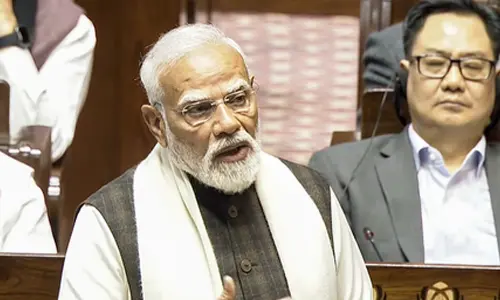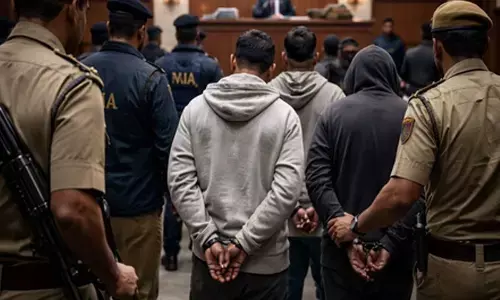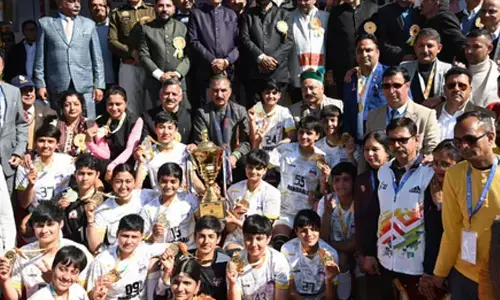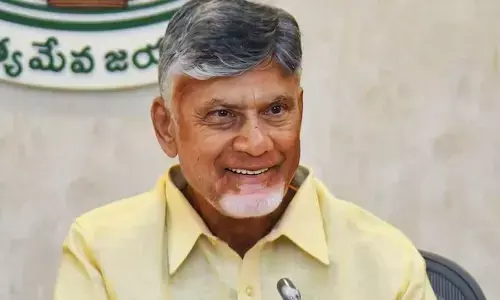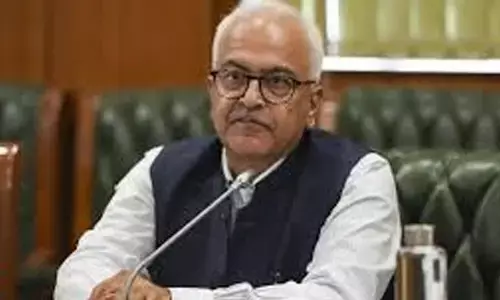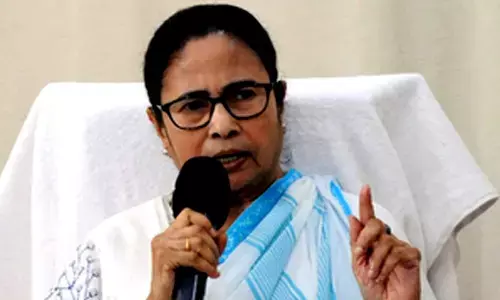India is cultural treasure of thousands of years: PM Modi
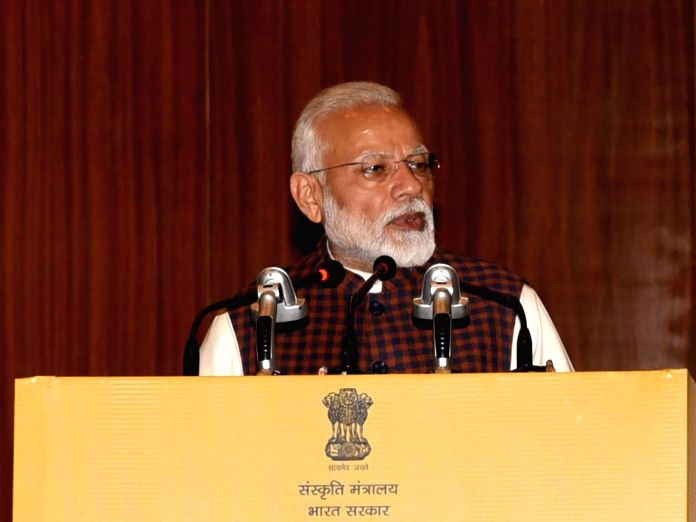
India is a cultural treasure trove of thousands of years that has faced long periods of slavery and invasions unfazed, Prime Minister Narendra Modi said on Monday, adding that its different cultural beads make the country multidimensional
New Delhi: India is a cultural treasure trove of thousands of years that has faced long periods of slavery and invasions unfazed, Prime Minister Narendra Modi said on Monday, adding that its different cultural 'beads' make the country multi-dimensional.
Modi spoke after President Ram Nath Kovind presented the Tagore Awards for Cultural Harmony.
The awards for 2014, 2015 and 2016 were presented to Manipuri dance exponent Rajkumar Singhajit Singh, Bangladeshi cultural organisation Chhayanaut and Statue of Unity sculptor Ram Vanji Sutar for "outstanding contribution towards promoting values of cultural harmony".
Said Modi: "Culture is the oxygen of any nation, which powers a nation's identity and existence. Any nation's longevity and respect is determined by the strength of its culture's roots.
"India has a cultural treasure trove of thousands of years, has faced long terms of slavery and invasions unfazed. If this has been possible, it was because of intellectuals like Swami Vivekandanda and Gurudev Rabindranath Tagore and many like them," Modi said in his address.
"The cultural capacity of India is like a colourful string of beads (mala), with different beads giving it strengths of different colours. 'The water changes every mile, and the language every four miles' is what makes us multi-cultural and multi-dimensional," he added.
Pointing to Tagore, in whose recognition the awards were instituted in 2012, he said that Tagore understood this power and collated India's multiplicity in Rabindra Sangeet, which has colours from all of India and is without linguistic barriers.
"He was beyond every border, and was committed to nature and humanity. He thought of the world as his home and received love from all over the world. People from Afghanistan still speak of the story of 'Kabuliwala'."
Modi added: "Gurudev's creations and messages are beyond time, space and circumstances. His argument of protection of humanity needs to be strengthened today. Amid challenges the world is facing today, it is very relevant to read, and learn Tagore."
The annual award, carrying a prize of Rs 1 crore, was instituted in 2012 in recognition of Tagore's contribution and understanding of the role of culture in enriching the human spirit and in commemoration of his 150th birth anniversary.
President Kovind said in his address at the Pravasi Bharatiya Kendra that Tagore was a remarkable genius and one the world's foremost cultural icons.
Said the President: "He was more than just a writer - he was a musician, artist, educationist and spiritual scholar of rare sensitivity. He is remembered every day as the poet who gave India its national anthem. And he remains one of our foremost cultural icons."
He described Tagore "as an internationalist, a child of Ma Bharati and an advocate of Vishvabharati".
The 2014 winner, Singh, a Padma Shri (1986) recipient and Fellow of Sangeet Natak Akademi (2011), has been a performer and a choreographer of Manipuri dance for over 60 years.
Awardee cultural organisation Chhayanaut, which was part of the movement for an independent Bangladesh, has promoted and preserved the philosophy of Tagore in that country which shares Tagore as the author of its national anthem.
The third recipient, 94-year-old Sutar, a sculptor and scholar, is now known for the Statue of Unity, the world's tallest statue and a tribute to Sardar Vallabhbhai Patel.
The first Tagore Award was conferred upon Indian sitar legend Pandit Ravi Shankar and the second in 2013 upon music maestro Zubin Mehta.








